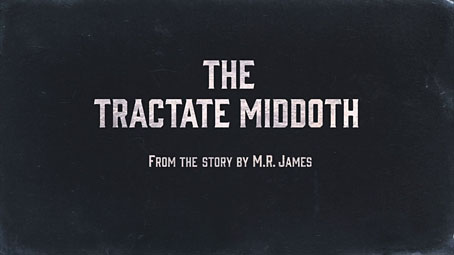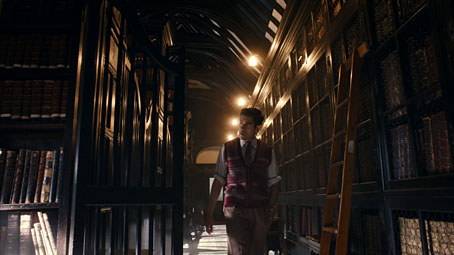Another short film by Mieczyslaw Waskowski, this is very different to the abstraction of Somnabulists being a remarkably faithful adaptation of HG Wells’ short story, The Magic Shop. Waskowski wrote and directed Prawdziwie magiczny sklep for Polish television in 1969. The title translates as “Truly Magical Shop” although “Genuine Magic Shop” would be more accurate, a description the vaguely sinister (and magical) proprietor in Wells’ story offers to the father and son who pay his establishment a visit.
The Magic Shop had been adapted by US television five years earlier for The Alfred Hitchcock Hour, a version that by coincidence was mentioned in the Guardian‘s print edition this weekend in a list of Reece Shearsmith’s favourite anthology dramas. I’m afraid I can’t share Shearsmith’s enthusiasm on this occasion (see an earlier post); the Wells story has been a favourite for years, and I was unimpressed by the skewing of the Hitchcock Hour version which turned the boy into a much older delinquent-in-the-making. The frisson of the original story comes from the disparity between the young son’s acceptance of the genuinely magical occurrences in the shop, and the growing alarm of the narrator-father when events graduate from the inexplicable to the sinister. Waskowski’s adaptation is more whimsical than Bradbury-dark but it still follows Wells very closely, at least until the end where things are padded out with an extra scene.
The version linked here is without subtitles but the visual storytelling is clear enough. Viewers familiar with The Saragossa Manuscript (1965) may recognise the actors playing the father and shopkeeper from Wojciech Has’s equally adept adaptation. The Wells story may be read here.
Previously on { feuilleton }
• Uncharted islands and lost souls
• Doctor Moreau book covers
• The Island of Doctor Moreau
• Harry Willock book covers
• The Time Machine
• The Magic Shop by HG Wells
• HG Wells in Classics Illustrated
• The night that panicked America
• The Door in the Wall
• War of the Worlds book covers



